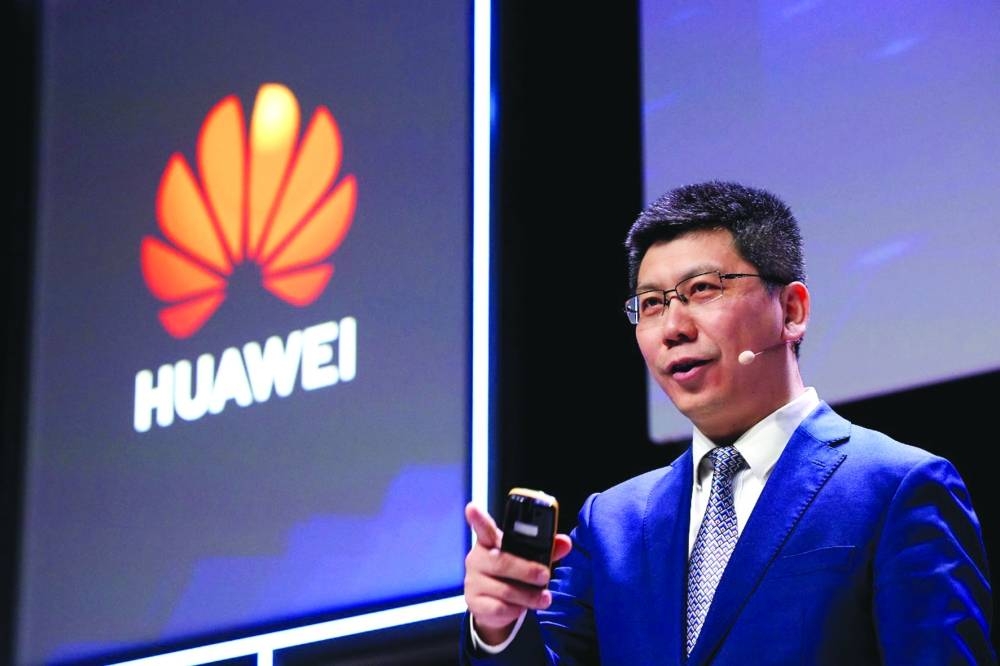Huawei has launched the digital managed network solution and products for carriers' B2B services, helping carriers seize digital transformation opportunities and boost new growth.
This solution provides digital managed network capabilities and rich product portfolios, helping carriers transform from ISPs to MSPs, Steven Zhao, vice-president of Huawei's Data Communication Product Line, said; announcing the launch at the recently held Mobile World Congress at Barcelona, Spain.
As industry digitalisation gains momentum, two trends are becoming increasingly evident. The first is that cloud-based enterprise service applications extend from office systems to production systems, requiring better quality assurance and a more secure network environment.
The second is that enterprise networks evolve towards fully wireless and network management shifts from static to dynamic, all of which complicate network assurance and necessitate real-time management capabilities. In particular, small- and medium-sized enterprises (SMEs) lack the necessary funds and talents to follow these trends and are therefore in urgent need of high-quality and affordable managed services.
Carriers have a large number of private line customers and boast three advantages: strong customer relationships, best-in-class network connectivity, and professional experience. As such, it is easier for carriers to provide managed network services for enterprise customers and quickly gain market growth.
Leading global carriers are actively transforming into digital managed network service providers and to facilitate this, Huawei launched the digital managed network solution and products at this year's MWC.
These new offerings help carriers add digital managed network services — including Managed LAN, Managed WAN, Managed security, and Managed DCN — on top of IP private lines, Zhao said, adding these offerings can also enable carriers to upgrade the quality assurance and automation capabilities of their network infrastructures for differentiated site-to-cloud private lines.
By leveraging cloud management technology, Private Line + Managed LAN helps carriers expand from traditional private lines into campus networks, according to him.
In this way, carriers can offer converged cloud-managed network services across LANs, WLANs, and IoT, he said, adding the resulting benefits include fast plug-and-play delivery, intelligent O&M for fault diagnosis in minutes, 85% less field support needed, and 20% shorter return on investment (ROI) time.
Drawing on SD-WAN networking technology; he said Private Line + Managed WAN enables hybrid networking of traditional MPLS private lines and other private line technologies.
"This helps enterprises quickly migrate to the cloud. Plus, 5G fixed-mobile convergence (FMC) and service-specific flexible traffic steering offer differentiated access experience and improve network service reliability," he said.
All of this ultimately strikes a perfect balance between service requirements and IT costs while also increasing the average revenue per user (ARPU) of private lines by more than 15%, Zhao said.
Building on cloud service architecture, Private Line + Managed Security helps carriers offer affordable cloud security service packages to enterprises. As such, enterprises can subscribe online to many security services, such as border protection, endpoint protection, and ransomware protection.
In this way, enterprises benefit from threat handling in seconds while reducing expenditure on dedicated security IT personnel, and carriers can increase their revenue of private line services by 20%, according to him.
Featuring private line-IDC synergy, Private Line + Managed DCN streamlines services inside and outside the cloud while provisioning services in minutes. This is made possible with Huawei's hyper-converged DCN solution that unifies general-purpose computing, high-performance computing, and storage networks into all-Ethernet. In turn, this cuts the TCO by 36% and accelerates enterprises' cloud journey.
Zhao also said carriers can leverage the industry's first tenant-level network slicing capability to achieve Mbps-level slice granularity and service SLA assurance, maximising network monetisation.
They can also draw on the industry's first digital network map for real-time visibility from physical links to services, as well as full-journey automation spanning pre-sales evaluation, during-sales deployment, and after-sales assurance of private line services, he said.
"Huawei will continue to invest more in innovative products and solutions tailored to industry digital transformation and carry out joint innovation with customers and industry partners. Doing so will help carriers transform into digital managed network service providers, accelerate industry digital development, and boost new growth," he added.

Steven Zhao, vice-president of Huawei's Data Communication Product Line.
